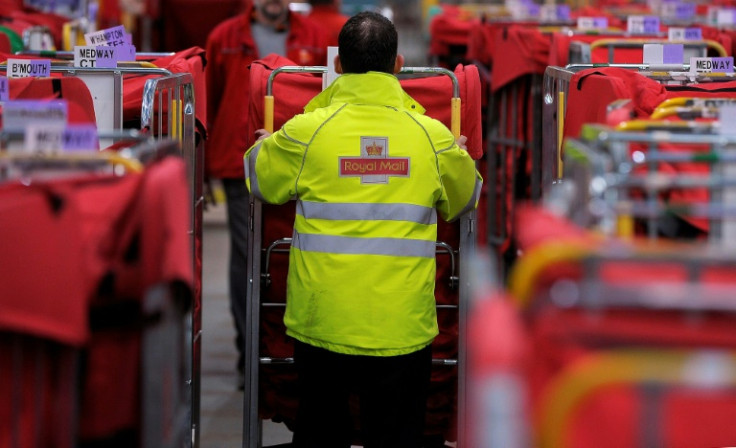UK PM Sunak Defends Royal Mail Delivery Obligation
British Prime Minister Rishi Sunak on Wednesday pledged to maintain Royal Mail's obligation to deliver letters six days a week, despite calls for less frequent service to slash costs.

British Prime Minister Rishi Sunak on Wednesday pledged to maintain Royal Mail's obligation to deliver letters six days a week, despite calls for less frequent service to slash costs.
Communications regulator Ofcom earlier Wednesday proposed that the former state-monopoly cut delivery to five days, or even three days per week, potentially saving the company hundreds of millions of pounds.
Its conclusions followed a report last year by British MPs that showed Royal Mail had "systemically failed" to meet its Monday-Saturday delivery requirement, as it prioritises parcels in the age of the internet.
"I agree about the importance of the Royal Mail's universal service obligation, and... we remain absolutely committed to ensuring that it remains as it is," Sunak told MPs when asked about Ofcom's proposals.
The regulator said "the universal postal service risks becoming unsustainable as people send fewer letters and receive more parcels, meaning reform is necessary to secure... (the) long-term future" of the postal operator set up more than 500 years ago.
Ofcom proposed "reducing the number of letter delivery days in the service from six to five or three", adding that this "would require government and parliament to change primary legislation".
It estimated that Royal Mail could save up to GBP200 million ($255 million) if deliveries of letters were reduced to five days -- and as much as GBP650 million for a reduction to three days.
Royal Mail parent, International Distributions Services, has long called for a shakeup of the universal service obligation (USO).
"The lack of action means that we are now facing a much more serious situation," IDS chief executive Martin Seidenberg said Wednesday.
Ofcom noted that other European countries had reduced the frequency of delivery or extended delivery times for letters -- including Sweden in 2018, Belgium twice since 2020, and Norway and Denmark twice each since 2016.
The watchdog will consult on its proposals, which include also suggestions on prices paid to send letters, before providing an update in the summer.
"Postal workers are part of the fabric of our society and are critical to communities up and down the country," Ofcom chief executive Melanie Dawes said Wednesday.
"But we're sending half as many letters as we did in 2011, and receiving many more parcels. The universal service hasn't changed since then, it's getting out of date and will become unsustainable if we don't take action," she added.
Royal Mail's USO stipulates that it must deliver letters six days a week to all 32 million addresses in the UK for the price of a stamp.
A first class stamp costs GBP1.25 and should guarantee next-day UK delivery for a letter, although the target is not always met.
A second class stamp, costing 75 pence, means a letter should arrive within three days.
© Copyright AFP 2025. All rights reserved.




















